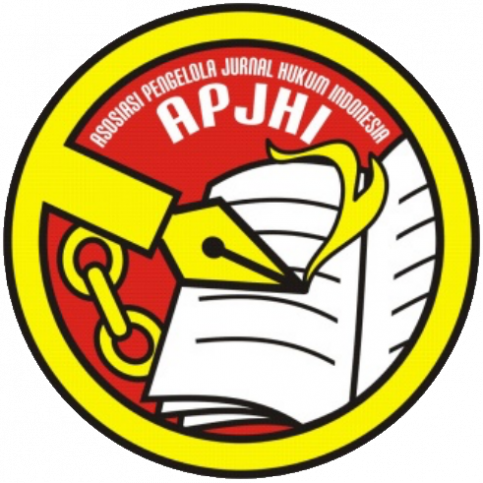PERLINDUNGAN HUKUM TERHADAP PASIEN DALAM MENGGUNAKAN JASA DUKUN BERANAK DI MUARA BUNGO
DOI:
https://doi.org/10.53337/jhki.v2i02.49Keywords:
Traditional Birth Attendants, Law, Patient, ProtectionAbstract
The aim of this study is to analyze why traditional birth attendants (dukun beranak) still practice in the working area of Puskesmas Muara Bungo, even though a partnership agreement with midwives has been made and they operate outside their scope of practice. The research problem focuses on how patients who use the services of traditional birth attendants are protected by the law and how legal sanctions are given to traditional birth attendants who conduct prenatal and delivery care without working with midwives. This study used a qualitative sociological juridical approach to examine the law as a social fact in social institutions. Primary data obtained directly from community behavior were conceptualized and analyzed using legal theory. The results of the study show that one of the reasons why the community still uses the services of traditional birth attendants in LK village is due to differences in religious and age factors between traditional birth attendants and village midwives. This condition leads to high maternal and neonatal mortality rates because pregnancies are not detected early, thus endangering the health of mothers and infants.
References
Butarbutar, S. F. (2021). Perlindungan Hak-Hak Tahanan dalam Proses Penyidikan Tindak Pidana Menurut KUHP. Lex Crime, VII(2), 59–65.
Firmanto, A. A. (2019). Perlindungan Hukum Pasien Pada Bidan Praktik Mandiri Di Indonesia Pasca Dikeluarkannya Undang-Undang Nomor 4 Tahun 2019 Tentang Kebidanan. Pranata Hukum, 14(2), 140–156. https://doi.org/10.36448/pranatahukum.v14i2.80
Handayani, L. (1994). Peran Dukun Bersalin Tradisional dalam Perawatan Kehamilan, Pertolongan Persalinan, Perawatan Pascapersalinan dan Kepercayaan. Populasi, 5(2), 62–73.
Mayasaroh, R. (2013). Peran Dukun Bayi dalam Penanganan Kesehatan Ibu dan Anak di Desa Bolo Kecamatan Demak Kabupaten Demak. Solidarity: Journal of Education, Society and Culture, 2(1), 36–44. http://journal.unnes.ac.id/sju/index.php/solidarity%0APOLA
Metti, D., & Rosmadewi, R. (2012). Hubungan Kemitraan Bidan dan Dukun dengan Persalinan oleh Tenaga Kesehatan di WilayahKerja Puskesmas Kecamatan Tanjung Sari Kabupaten Lampung Selatan. Jurnal Kesehatan Metro Sai Wawai, 5(1), 59–64. https://ejurnal.poltekkes-tjk.ac.id/index.php/JKM/article/view/1409
Nola, L. F. (2016). Upaya Pelindungan Hukum Secara Terpadu Bagi Tenaga Kerja Indonesia (TKI). Negara Hukum: Membangun Hukum Untuk Keadilan Dan Kesejahteraan, 7(1), 35–52. https://jurnal.dpr.go.id/index.php/hukum/article/view/949
Suhardini, E. D. (2016). Perlindungan Hukum Terhadap Pasien Sebagai Pengguna Jasa Pelayanan Rumah Sakit Swasta. Wacana Paramarta: Jurnal Ilmu Hukum, 15(1), 1–7.
Umar, N. H. (2019). Analisis Pemilihan Dukun sebagai Penolong Persalinan (Studi Kasus di Puskesmas Bulak Banteng, Kota Surabaya). Jurnal Manajemen Kesehatan Indonesia, 7(1), 9–15. https://doi.org/10.14710/jmki.7.1.2019.9-15
Undang-Undang Nomor 36 Tahun 2009 tentang Kesehatan
Widiani, I., Junaid, & Lisnawaty. (2016). Faktor yang Berhubungan dengan Pemanfaatan Pelayanan Kesehatan Ibu dan Anak Di Puskesmas Tomia Timur Kelurahan Tongano Timur Kabupaten Wakatobi Tahun 2015. JIMKESMAS?:Jurnal Ilmiah Mahasiswa Kesehatan Masyarakat, 1(3).
Downloads
Published
How to Cite
Issue
Section
License
Copyright (c) 2022 JURNAL HUKUM KESEHATAN INDONESIA

This work is licensed under a Creative Commons Attribution-ShareAlike 4.0 International License.















